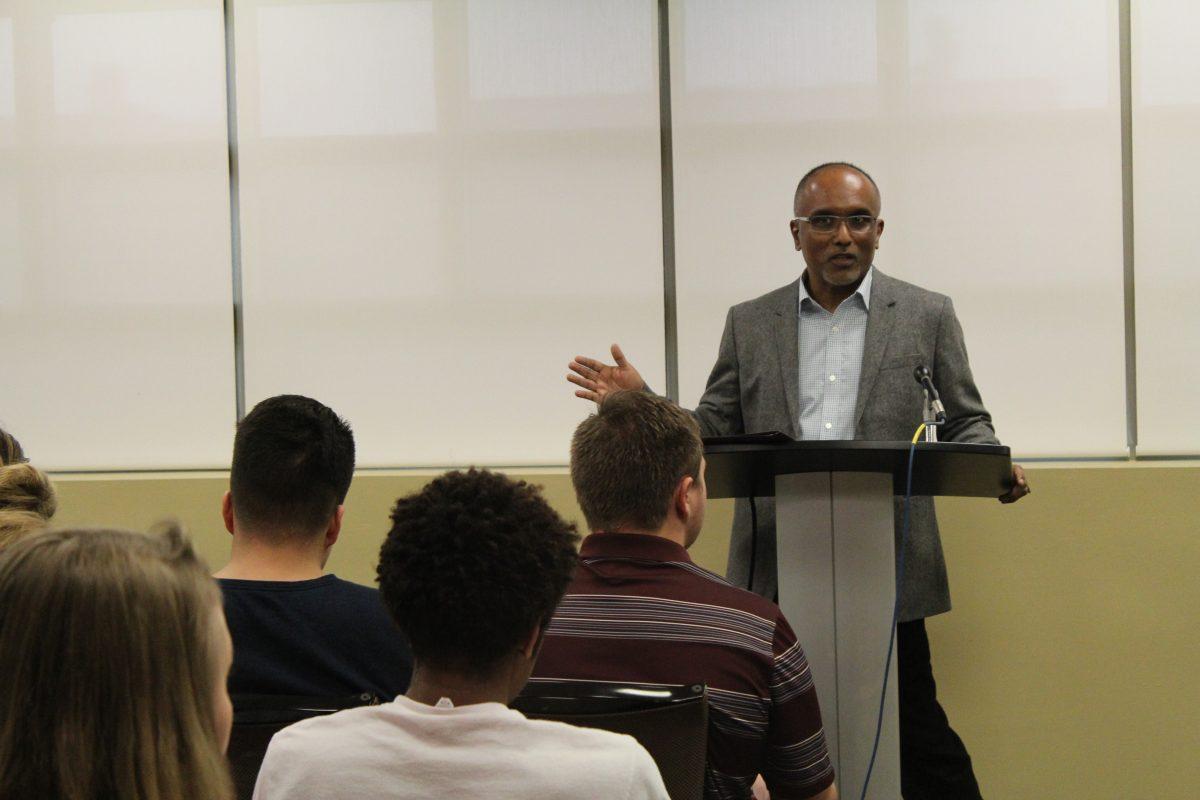Cherian George, an associate professor in the Journalism Department of Hong Kong Baptist University, gave a presentation on Tuesday titled “On the Offensive: The Global Advance of Intolerance in Democratic Politics,” which focused on what he calls “hate spin” in politics and how societies should respond.
George’s lecture draws on his new book, Hate Spin: The Manufacture of Religious Offense and its Threat to Democracy, which argues that while outbreaks of religious intolerance are usually spontaneous, they often involve proper campaigns manufactured by political opportunists to activate supporters and downgrade adversaries.
Sandra Braman, A&M communications professor, invited George and sponsored the event.
“Dr. George has done really detailed research in a number of countries and came up with this original theory about the political usage of hate speech,” Braman said. “I think it is one of the most important intellectual developments about how society is operating and the area in which the law needs to respond.”
George’s lecture focused on the increasing diversity of the world today and the different methods in which each country responds. He chose the United States, India and Indonesia, not only because they are the three largest democracies in the world, but also because these countries are secular democracies, yet have faced the pressure of nationalism.
“Our world is getting more diverse,” George said. “Purity of identity is a delusion for societies unwilling to give up benefits of advanced industrial modernity.”
George had a unique formula for what he calls “hate spin,” a concept highlighted in his new book, which is a mix of incitement and indignation. He defines incitement as harm instigated by speech, and indignation as harmin reaction to speech.
“Most influential leaders know better than to directly involve themselves with such hate speech,” George said. “They conveniently get their message across through other means using distributed and layered campaigns.”
George also discussed the various instances of hate spin in India and Indonesia where outrage was instigated using artistic works that were outdated, just to add to the current aspect of discussion. The real agenda is not the campaign itself, but rather the introduction to certain rhetoric, George said.
Camille Carter, sophomore political science major, attended the lecture and said she felt she learned a lot by attending.
“I thought Dr. George was informative and relevant,” Carter said. “We are in this climate of hate speech and we need to understand how to be able to handle it and deal with it.”
George’s work highlights the use of political speech in a unique way. The goal is to get people to understand what is really going on and how to use that knowledge to understand the national and world situation.
“His insight is that a lot of what we’re hearing may not actually be about people believing in those things, but about them taking advantage of the reaction people have to such things in order to accomplish other goals.” Braman said.
George said in the current environment of United States and world hate speech, individuals must not overreact when there seems to be a pattern where the other side benefits from the reaction.
“A nation is a community of communities,” George said. “The mental leap of the human rights revolution is that we not only owe moral obligation to our families, but also to people who are different from us.”
Professor Cherian George lectures on the growth of intolerance in politics
February 7, 2017
Photo by Photo by Madeline Sambrano
Dr. Cherian George speaking to an audience at his lecture titled “On the Offensive: The Global Advance of Intolerance in Democratic Politics”
0
Donate to The Battalion
$1765
$5000
Contributed
Our Goal
Your donation will support the student journalists of Texas A&M University - College Station. Your contribution will allow us to purchase equipment and cover our annual website hosting costs, in addition to paying freelance staffers for their work, travel costs for coverage and more!
More to Discover










